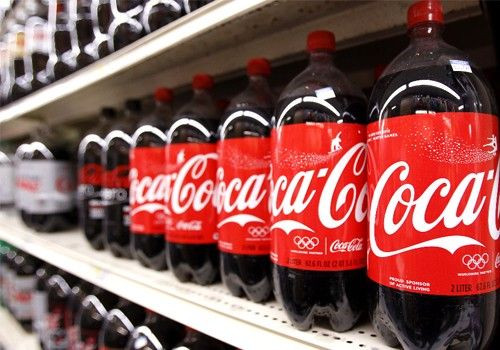Coca-Cola, Pepsi may contain cancerous coloring agents, should be banned: Report

Two of the world's biggest cola drinks makers - Coca-Cola and PepsiCo - have come under fire for using cancerous caramel coloring agents in their drinks.
Even as California has scheduled a hearing on the labeling requirement for products that contain the carcinogenic chemicals for March 10, a consumer group has now taken up the issue on a national level.
According to the Center for Science in the Public Interest (CSPI), two chemicals - 2-methylimidazole (2-MEI) and 4-methylimidazole (4-MEI) -that are widely being used as caramel coloring, are cancerous.
In 2003 and 2005, studies by the National Institutes of Health's National Toxicology Program did find that the chemicals caused cancer in some mice and rats. However, it is still not known whether the two chemicals, which are used in dark soft drinks and sometimes in beer, soy sauce and other foods, can cause cancer in human beings.
CSPI has asked the Food and Drug Administration to look into the matter and ban the substances from use in drinks and foods, if found harmful to human health.
However, CSPI Executive Director Michael F. Jacobson has acknowledged that the two chemicals are not potent carcinogens. Nonetheless, they have no nutritional or preservative value and it is totally inappropriate to accept any risk from artificial coloring, he said.
However, the American Beverage Association has said that there's no evidence that the chemicals cause cancer in human beings and said CSPI is only attempting to scare consumers away.
Coca-Cola Co. has also issued a statement, saying its beverages are completely safe. CSPI's statement irresponsibly insinuates that the caramel used in our beverages is unsafe and maliciously raises cancer concerns among consumers, the company said.
Meanwhile, it remains to be seen whether California will go ahead with its plan of requiring foods and drinks manufacturers to label carcinogenic chemicals on their products.
Last month, the state's Office of Environmental Health Hazard Assessment added 4-MEI (but not 2-MEI) to the list of chemicals known to the state to cause cancer, birth defects or other reproductive harm. The state has also set an exposure limit of the chemical in individual products - 16 micrograms per day - beyond which the products would need to be labeled. According to CSPI, some popular cola drinks contain up to 200 micrograms of 4-MEI per 20 oz bottle.
Not surprisingly, the American Beverage Association, California League of Food Processors, Grocery Manufacturers Association and the National Coffee Association are vigorously protesting against the labeling policy and have sued the California government in this regard.
The labeling requirement will go into effect in January 2012.
To contact the reporter on this story, email s.chatterjee@ibtimes.com
© Copyright IBTimes 2024. All rights reserved.





















